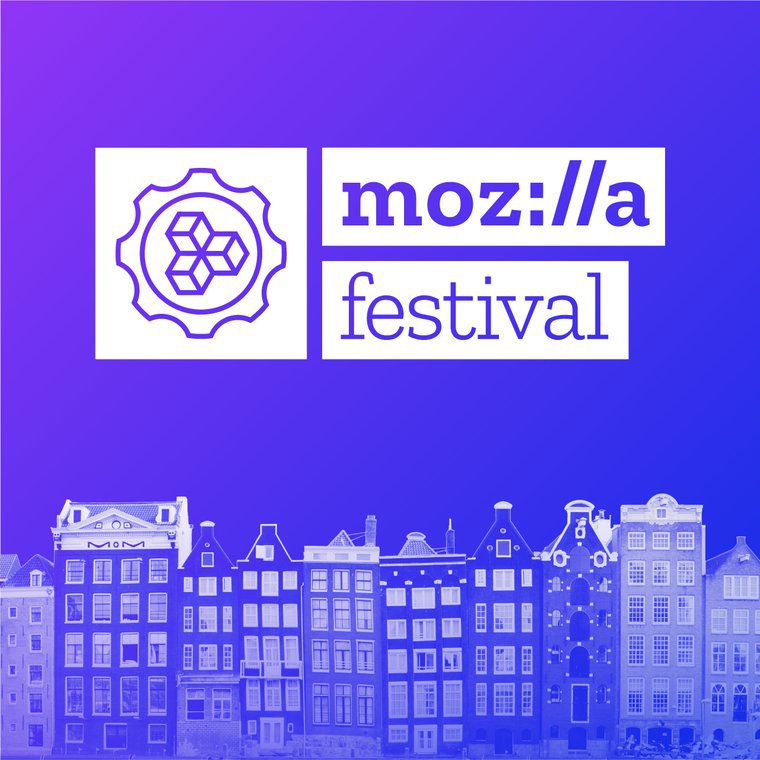
Mozilla is building a movement for a healthier internet, and that means finding partnerships across the world - from activists and artists to non-profits and companies. When partnering with a company, we determine whether their values align with ours. Many organizations have money and influence, but few seek out their success by empowering their customers and creating a more vibrant, diverse, and equitable internet. Coil is one of those few and it's why we are so excited to have them as a MozFest Presenting Sponsor once again.
If you’ve already grabbed your MozFest ticket, you’ve likely already had a chance to activate a free Coil trial membership as part of the Grand Web Monetization Experiment at MozFest. And if you haven’t yet, check your inbox! Since this is a brand new concept for most of us, we’ve asked their Founder and CEO, Stefan Thomas, to fill in the details and share his excitement for MozFest.
Jesse: To kick things off, what inspired you to start Coil?
Stefan: I got my start as a web developer and grew up making websites. A lot of sites I was working with, for different reasons, ran into serious issues with monetization. The owners of the site would either have to align themselves with a big platform that has a lot of ads on it -- publishing their content on the platform as well as their own site -- or they had to use an ad network like Google AdSense. Alternatively, if they wanted to stay independent well, they could have a subscription. But then they'd have to put up paywalls and, obviously, people have to sign up and jump through a lot of hoops which creates an even worse user experience.
It’s always frustrated me that you couldn’t have independence, make money, and have a really nice user experience. I always thought there should be a way to have all three of these things. And so, when I was working on the payments technology called Interledger that powers Web Monetization and Coil, I realized that it’s actually possible to have all three. Web Monetization is an open technology, it’s an open standard, so you’re still independent, yet it has the same sort of frictionless experience like a big subscription platform might have. I realized that it was going to be hard to get this started from scratch, but I thought that it was worth a try.
Jesse: You touched on this, but can you elaborate more on how Web Monetization makes the internet a better place?
Stefan: If we zoom out a bit and we look at the web as a whole, obviously everybody is facing those exact same questions that I was facing. There’s so much consolidation happening where a few large subscriptions services and a few really large ad networks have the bulk of the market share. So, what I’m hoping will happen with Web Monetization is that it levels the playing field between a large website and a small website. This is because it doesn’t require you to have tons and tons of data on lots of people for targeting ads or a ton of content and value just on your own site to get somebody to bother subscribing. And, with Web Monetization, it’s very easy to support many, many websites with just a one-time setup. Ultimately, I’m hoping that it’ll make it much more viable to have smaller websites that are still making a reasonable amount of money. So this kind of decentralization is one thing and another would be financial access.
Right now, most payments on the web use traditional payment rails -- things like credit cards and bank wires. Meanwhile, the technology Web Monetization is built on (Interledger) is designed to function more like the Internet, where anyone who wants to provide access to the global network can do so. There’s nobody who owns the whole network, there’s nobody who controls the network, there’s no one person who can say “hey you can’t join the network!” As long as someone’s willing to peer with you -- you can offer Internet connectivity and Interledger in the same way.
If this technology takes off, becomes popular, and is deployed at scale, you’ll see more people having access to financial services and payments even if they don't have a bank account. On a broader scale, we're hoping that Interledger improves financial access, because the Web should not leave anyone behind and for that you need payment technology that doesn't leave people behind either.
Jesse: To build on that, do you have plans for growing Web Monetization?
Stefan: We've always put our support behind the Web Monetization community as this is the sort of technology that can only be achieved with a grassroots approach. We’ve mostly focused on listening to what the community is asking for, and right now, the biggest thing they want is more flexibility in terms of what they can do with Interledger. We launched Coil as an initial service to get the ball rolling, but it is limited in the sense that you can only pay a fixed monthly fee, and if you wanted to pay more, you couldn’t. Also, if you want to support specific creators in a more direct way, you can't do that right now. So, we're working to increase that functionality and one of the things we're hoping to roll out fairly soon is tipping. This way, you can support a specific creator with a larger amount. MozFest attendees will actually be getting a preview of this feature as we're giving everybody tipping credits along with their free Coil membership. We’re excited to try this new feature out at MozFest.
Jesse: You mentioned the free Coil membership and tipping credits already, but how else is your participation different in 2022 compared to previous years?
Stefan: One of the things that's changed is that when we first started out, we were really the only organization promoting Web Monetization. And now there is a separate foundation promoting Web Monetization and Interledger -- the Interledger Foundation -- and they have their own presence at MozFest. They've also taken over Grant For The Web, which used to be run out of Coil. In other words, a lot of the stuff that we used to do early on is now done by the Interledger Foundation, which helps free up time for Coil to do new things. Our sponsorship this year provides some insight into where we're going with our products and some of the new features that we're working on. That’s why we are giving every attendee a six months free membership, plus $10 of tipping credit, so they can play around with it. And that, in turn, has created some excitement among others who are contributing content to MozFest. For example, the Free Music Archive is doing a treasure hunt around Web Monetization. There are a lot of things like that this year. We just want to make it as interactive as possible, so people can kick the tires on the technology and try it.
Jesse: What are your favorite sites that are web monetized?
Stefan: There's constantly new stuff coming out so it's hard to pick just a few, but you can see a more expansive list of web monetized websites and experiences by visiting https://community.webmonetization.org. There’s also a fantastic blog post by Mozilla fellow Amber Case that’s talking about a lot of different projects and their experience with Web Monetization.
Some of my personal favorite WM-enabled sites are HackerNoon, The Olognion, Simmer.io, openDemocracy, The History of the Web, Techdirt, and Hashnode.
Jesse: Have you seen a lot of growth in terms of the number of Web Monetized sites over the years?
Stefan: Yes, there have been a lot of people adding Web Monetization. But at the same time, what we've been more focused on than growth is listening to feedback after people have been playing around with it because, again, there’s definitely been some constructive feedback like wanting different payment schedules, more control, recurring payments, and so on. At this stage, I think it's more important to unlock the full functionality of Interledger, which enables Web Monetization, rather than just pure growth. That also means making it accessible in as many countries as possible, making it accessible on as many browsers as possible, and making it easier for developers to tinker on the live network. The raw growth has been happening more through Grant for the Web, which continues to be out there giving grants and getting more sites web monetized.
Jesse: Any final words you’d like to share with the MozFest community?
Stefan: One thing that people should definitely check out are the two blog posts that I’ve shared with you below from the Interledger Foundation. They explain more about what's going on with Web Monetization at Mozfest and how you can get involved.
- Read more on Interledger's Grand Web Monetization Experiment with MozFest!
- You'll find an 'Intro To Web Monetization' here!
The other thing I’d want to say is that when I look around the world, there are so many things that have reaffirmed what we're doing. You see Visa and MasterCard kicking off content creators and creators lamenting that there's no way to escape the few big tech companies. Or, you see politicians talking about actions they can take to either protect people's privacy or reign in big tech, but it's really tough for governments to do this because obviously the same companies that they're trying to regulate also have huge lobbying budgets. So, I think a better approach is always from the ground up and by having a technology that totally changes the market dynamics. We’re hoping that Coil can have an impact on this effort and conversation.
Jesse: Thank you and we’ll see you next year!
Stefan: Thank you!

Jesse works on Mozilla’s Partnerships and Fundraising team where he focuses on growing the Guardian Giving (for individual donors) and MozFest sponsorship program.
MozFest is part art, tech and society convening, part maker festival, and the premiere gathering for activists in diverse global movements fighting for a more humane digital world. To learn more, visit www.mozillafestival.org.
Sign up for the MozFest newsletter here to stay up to date on the latest festival and internet health movement news.








